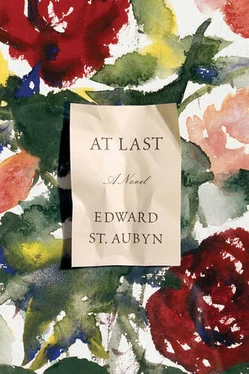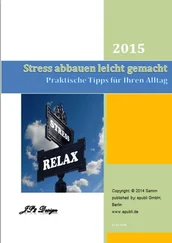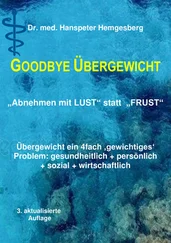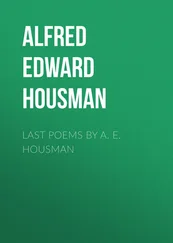Mary had asked him to read a long poem by Henry Vaughan that he had never come across before. She told him that it fitted perfectly with Eleanor’s view that life was an exile from God, and death a homecoming. Other, more enjoyable poems had seemed conventional or irrelevant by contrast, and Mary had decided to stay loyal to Eleanor’s metaphysical nostalgia. As far as Johnny was concerned, giving a religious status to these moods of longing was just another form of resistance. Wherever we came from and wherever we were going (and whether those ideas meant anything at all) it was the bit in between that counted. As Wittgenstein had said, ‘Death is not an event in life: we do not live to experience death’.
Johnny smiled vaguely at Erasmus as they crossed paths in the aisle. He balanced his copy of The Metaphysical Poets on the ledge of the lectern and opened it on the page he had marked with a taxi receipt. His voice was strong and confident as he read.
Happy those early days, when I
Shin’d in my Angel-infancy!
Before I understood this place
Appointed for my second race,
Or taught my soul to fancy aught
But a white celestial thought;
When yet I had not walk’d above
A mile or two from my first Love,
And looking back — at that short space —
Could see a glimpse of His bright face;
When on some gilded cloud or flower
My gazing soul would dwell an hour,
And in those weaker glories spy
Some shadows of eternity;
Before I taught my tongue to wound
My Conscience with a sinful sound,
Or had the black art to dispense
A several sin to ev’ry sense,
But felt through all this fleshly dress
Bright shoots of everlastingness.
Nicholas had started to feel that special sense of claustrophobia he associated with being trapped in chapel at school. Wave after wave of Christian sentiment without even the consolation of an overdue Latin translation tucked furtively in his hymnal. He cheered himself up with his own version of the Christian story: God sent his only begotten son to Earth in order to save the poor, and it was a complete washout, like all half-baked socialist projects; but then the Supreme Being came to his senses and sent Nicholas to save the rich, and it came to pass that it was an absolute succès fou .’ No doubt with its deplorable history of torture, Inquisition, religious wars, crushing dogma, as well as its altogether more forgivable history of sexual impropriety and worldly self-indulgence, the Roman Catholic Church would look on this crucial development as a heresy; but a heresy was only the prelude to a new Protestant religious order. ‘Nicholism’ would sweep through what his ghastly American investment adviser called the ‘high-net-worth community’. The great question, as always, was what to wear. As the Arch Plutocrat of the Church for the Redemption of Latter-Day Riches one had to cut a dash. Nicholas’s imagination wandered back to the page’s outfit he had worn as a ten-year-old boy at a very grand royal wedding — the silk breeches, the silver buttons, the buckled shoes…he had never felt quite as sure of his own importance since that day.
Johnny renewed his efforts at intonation for the final stanza.
O how I long to travel back,
And tread again that ancient track!
That I might once more reach that plain
Where first I left my glorious train;
From whence th’ enlighten’d spirit sees
That shady City of Palm-trees.
But ah! my soul with too much stay
Is drunk, and staggers in the way!
Some men a forward motion love,
But I by backward steps would move;
And when this dust falls to the urn,
In that state I came, return.
Complete rubbish, thought Nicholas, to imply that one returned to the place from which one came. How could it be the same after one’s immensely colourful contribution, and how could one’s attitude to it be the same after passing through this Vale of Invitations and Sardonic Laughter? He glanced down at the order of service. It looked as if that poem by Vaughan was the last reading. At the bottom of the page there was a note inviting everyone to join the family at the Onslow Club for a drink after the ceremony. He would love to get out of it, but in a moment of reckless generosity he had promised Nancy that he would accompany her. He also had a four o’clock appointment to visit a dying friend at the Chelsea and Westminster Hospital and so it was in fact conveniently nearby. Thank goodness he had booked a car for the day; with distances of that kind (about six hundred yards) one always had to put up with the ill temper of cab drivers who were drifting around the Fulham Road dreaming of a fare to Gatwick or Penzance. He must keep a firm hold on his car; otherwise Nancy would commandeer it for her own purposes. He could easily totter out of the hospital, suffering from the ‘compassion burn-out’ he knew sometimes afflicted the most heroic nurses, only to find that his car was in Berkeley Square where Nancy was trying to bamboozle a Morgan Guaranty employee into giving her some cash. Her cousin Henry, who had unexpectedly turned up today, had once told him that when he and Nancy were children she had been known as ‘the Kleptomaniac’. Little things used to disappear — special hairbrushes, childish jewellery, cherished piggy banks — and turn up in the magpie’s nest of Nancy’s bedroom. Parents and nannies explained, pedantically at first and then with growing anger, that stealing was wrong, but the temptation was too strong for Nancy and she was expelled from a series of boarding schools for theft and lying. Ever since Nicholas had known her, she had been locked into a state of covetousness, a sense of how much better she would have used, and how much more she deserved, the fabulous possessions belonging to her friends and family. She resisted envying things which belonged to people she didn’t know at all, but only to distance herself from her maid, who filled the kitchen with prurient babble about the lives of soap-opera stars. Her recounting of their commonplace ‘tragedies’ was used to soothe what had been excited by earlier stories of unmerited rewards and ludicrous lifestyles.
Celebrities were all very well for the masses, but what counted for Nicholas was what he called ‘the big world’, namely the minuscule number of people whose background, looks, or talent to amuse made them worth having to dinner. Nancy belonged to the big world by birth and could not be exiled from that paradise by her perfectly ghastly personality. One had to be loyal to something, and since it offered more scope for treachery than anything except politics, Nicholas was loyal to the big world.
He watched Patrick with a predator’s vigilance, hoping for a sign that the ceremony was finally over. Suddenly, the sound system swelled back to life with the brassy opening strains of ‘Fly Me to the Moon’.
Fly me to the moon
Let me play among the stars
Let me see what spring is like
On a-Jupiter and Mars
Here we go again, thought Nicholas, off to the bloody moon. Frank Sinatra’s voice, oozing with effortless confidence, drove him to distraction. It reminded him of the kind of fun he had not been having in the fifties and sixties. No doubt Eleanor had imagined she was enjoying herself when she lowered the record needle onto a Frank Sinatra single, whizzing round at a giddy forty-five rpm, its discarded sleeve, among the lipstick-smeared glasses of gin and the overflowing ashtrays, displaying a photograph of that sly undistinguished face grinning from the upper reaches of a sky-blue suit.
Читать дальше












